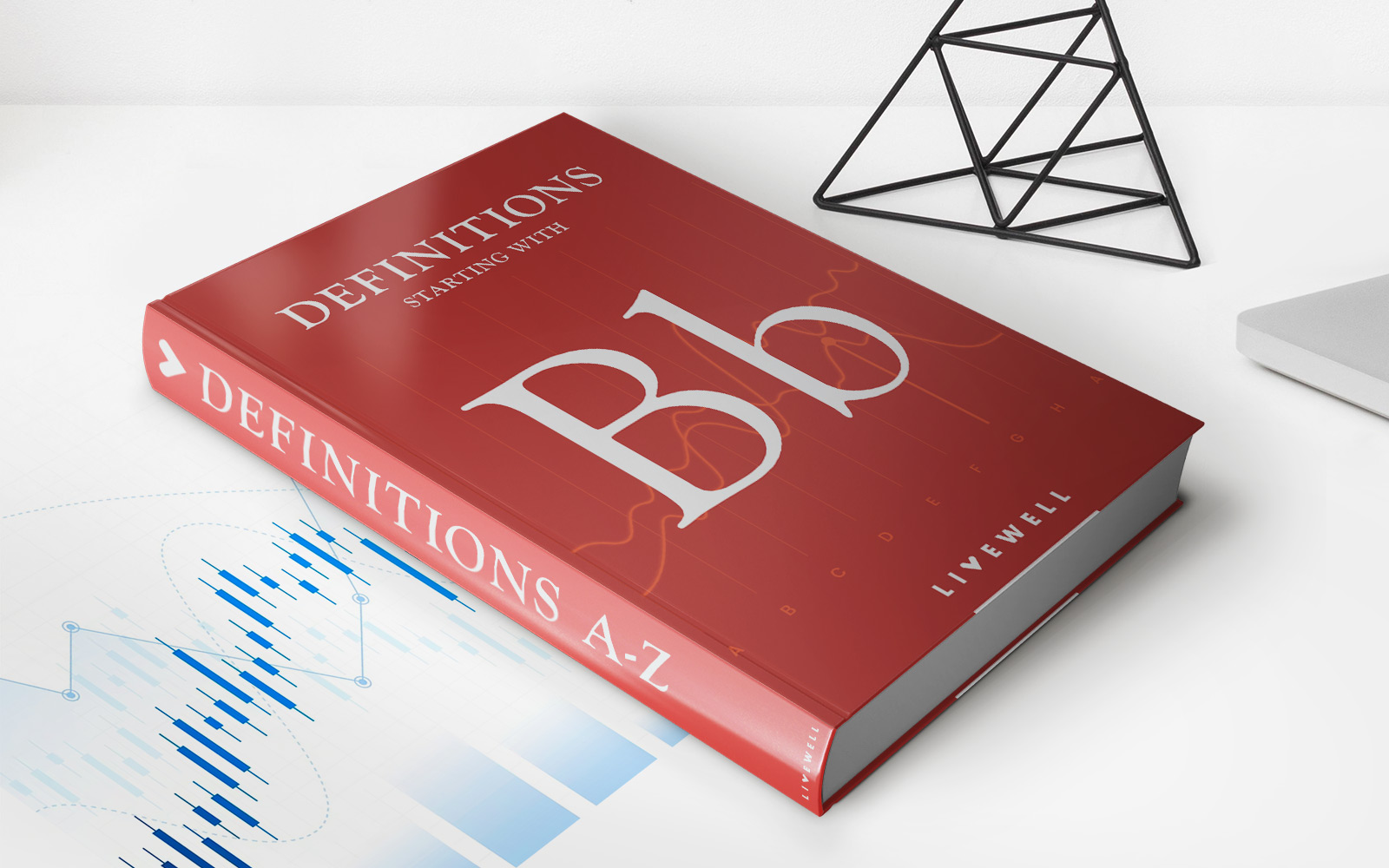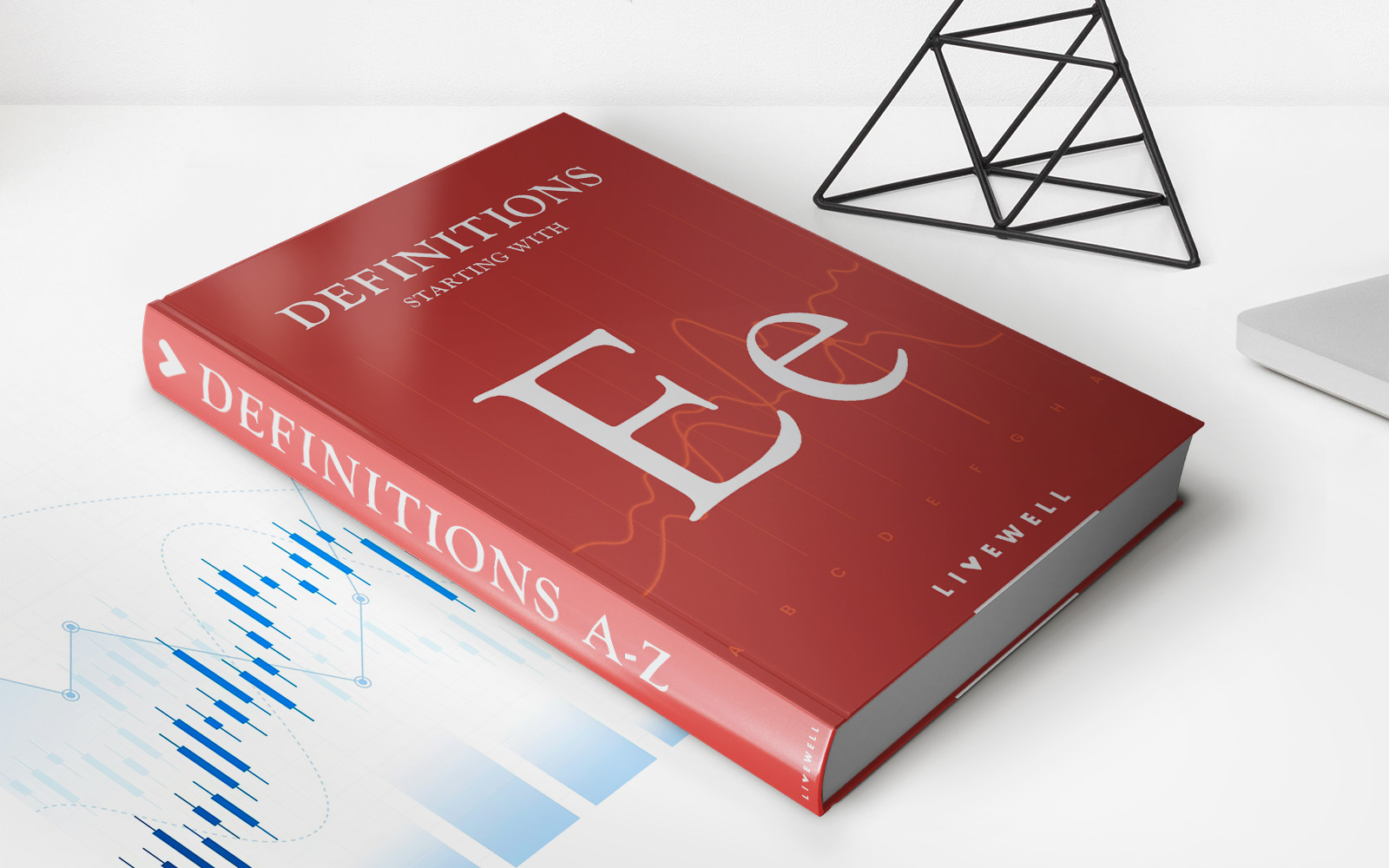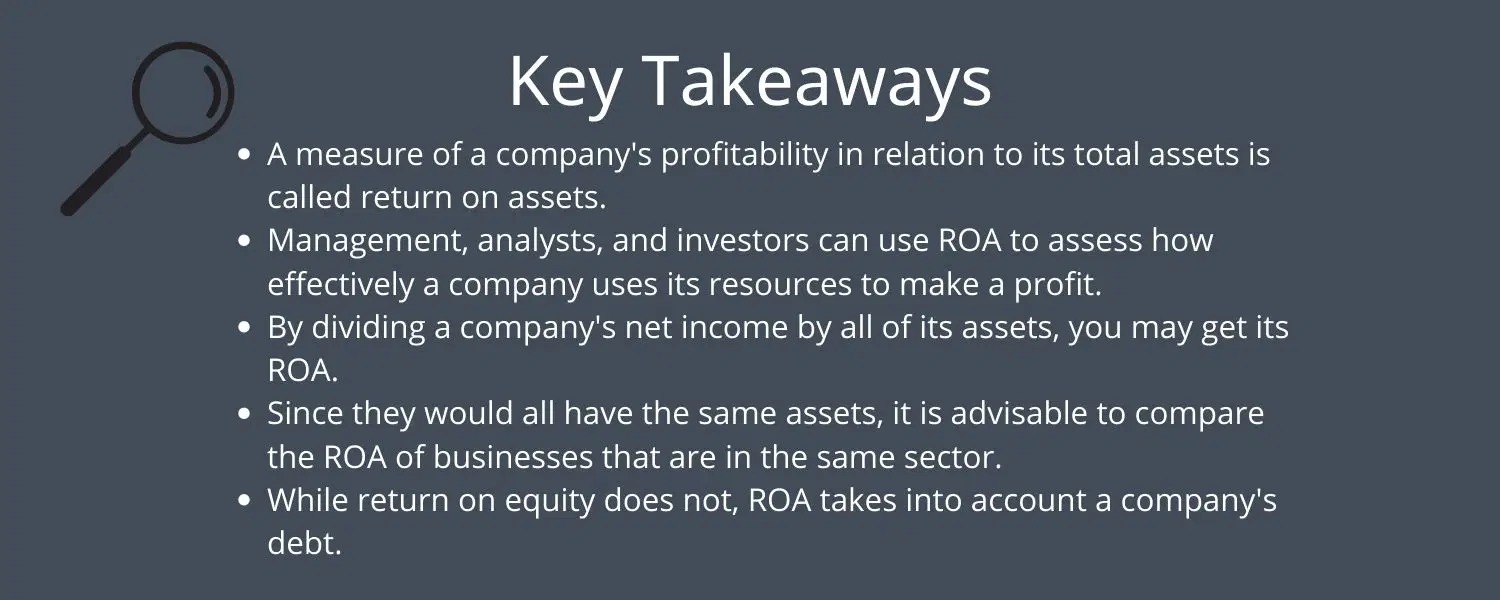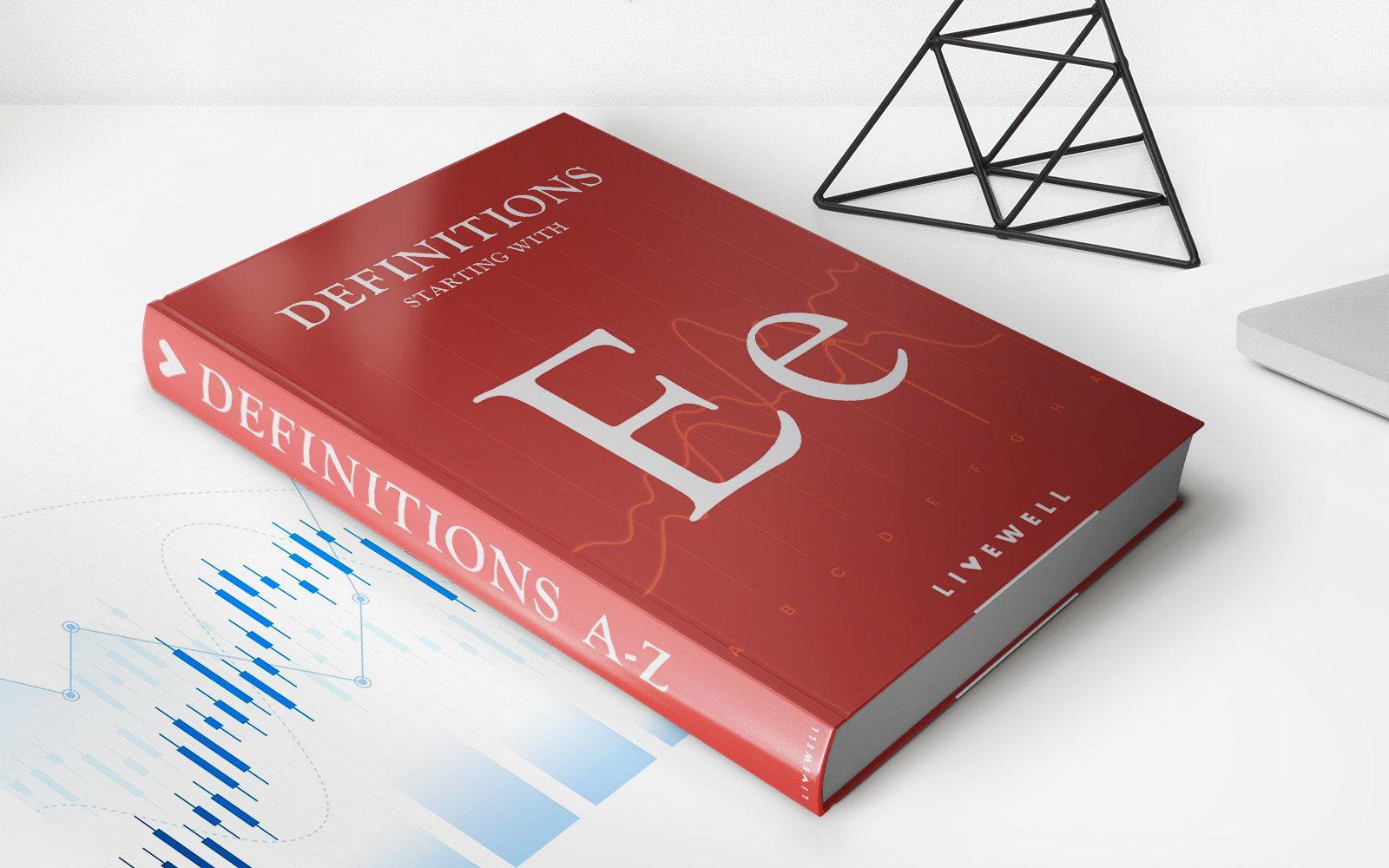Home>Finance>Why Do Brokered Certificates Of Deposit Have Higher Interest Rates


Finance
Why Do Brokered Certificates Of Deposit Have Higher Interest Rates
Modified: December 29, 2023
Discover why brokered certificates of deposit offer higher interest rates and learn how they can help you maximize your financial returns.
(Many of the links in this article redirect to a specific reviewed product. Your purchase of these products through affiliate links helps to generate commission for LiveWell, at no extra cost. Learn more)
Table of Contents
- Introduction
- Definition of brokered certificates of deposit
- Explanation of interest rates
- Factors influencing interest rates of brokered certificates of deposit
- Comparison of interest rates with traditional certificates of deposit
- Benefits of investing in brokered certificates of deposit
- Risks associated with brokered certificates of deposit
- Tips for investing in brokered certificates of deposit
- Conclusion
Introduction
When it comes to investing your hard-earned money, finding the right option can be a daunting task. With a multitude of investment vehicles available, it’s crucial to explore all possibilities and understand the pros and cons of each. One such investment option that may catch your attention is brokered certificates of deposit (CDs).
Brokered CDs are a type of time deposit offered by financial institutions through brokerage firms. While traditional CDs are directly purchased from the issuing bank, brokered CDs are bought and sold through a brokerage firm, making them accessible to a wider range of investors.
One key factor that attracts investors to brokered CDs is the possibility of higher interest rates. These higher rates can help boost your savings and potentially provide a higher return on investment compared to other low-risk options like traditional savings accounts or traditional CDs.
But why exactly do brokered CDs offer higher interest rates? This article will delve into the reasons behind this and explore the various factors that influence the interest rates for brokered CDs. We will also discuss the benefits and risks associated with investing in brokered CDs, giving you a comprehensive understanding of this investment option.
So, if you’re curious about why brokered CDs offer higher interest rates and want to make an informed decision about your investments, read on to discover more about these intriguing financial instruments.
Definition of brokered certificates of deposit
Before delving into the intricacies of brokered certificates of deposit (CDs), let’s first understand what exactly they are and how they differ from traditional CDs.
A certificate of deposit (CD) is a financial product offered by banks and other financial institutions. It is a type of time deposit where you deposit a certain amount of money for a specific period, known as the term or maturity period. In return, the bank pays you a fixed interest rate over the term of the CD. At the end of the term, you receive your initial deposit along with the interest earned.
Brokered CDs, on the other hand, are CDs that are bought and sold through brokerage firms rather than directly from the issuing banks. In this case, the brokerage firm acts as an intermediary between the investor and the issuing bank.
Here’s how it works: The brokerage firm establishes relationships with multiple banks and financial institutions that offer CDs. They aggregate these CDs and make them available to their clients as “brokered CDs.” When investors purchase brokered CDs, they are essentially investing in a portfolio of CDs issued by various banks.
Brokered CDs have several distinctive characteristics:
- Wider Choice: Unlike traditional CDs, where you are limited to the CDs offered by a single bank, brokered CDs provide a wider range of options from different banks and financial institutions. This allows investors to diversify their CD portfolio and potentially access higher interest rates.
- Liquidity: While traditional CDs have a locked-in period, brokered CDs offer more flexibility when it comes to selling or redeeming them before maturity. However, keep in mind that there may be penalties or fees associated with early withdrawals.
- Secondary Market: Brokered CDs have a secondary market where they can be bought and sold before maturity. This provides investors with additional opportunities to manage their investments and potentially capitalize on changes in interest rates.
- FDIC Insurance: Like traditional CDs, brokered CDs are typically covered by FDIC insurance up to the applicable limits per depositor and per institution. This provides investors with protection in case of bank failures.
Now that we have a clear understanding of what brokered CDs are, let us explore why they tend to offer higher interest rates compared to traditional CDs.
Explanation of interest rates
Interest rates play a crucial role in the world of investments, and brokered certificates of deposit (CDs) are no exception. Understanding how interest rates work can shed light on why brokered CDs offer higher rates compared to traditional CDs.
Interest rates represent the cost of borrowing or the return on investment. When you deposit money into a CD, you are essentially lending that money to the issuing bank. In return, the bank pays you interest over the term of the CD.
The interest rate on a CD is influenced by various factors, including the current economic conditions, market interest rates, and the length of the CD term. Generally, longer-term CDs offer higher interest rates compared to shorter-term CDs, as they lock in your money for a longer period.
When it comes to brokered CDs, the interest rates are typically influenced by a combination of factors:
- Supply and demand: The interest rates on brokered CDs are determined by the demand from investors and the supply of available CDs in the market. If there is a high demand for brokered CDs, banks may be motivated to offer higher interest rates to attract investors.
- Competition among banks: Banks compete with each other to attract investors’ funds. Offering higher interest rates on brokered CDs can be a way for banks to stand out and attract more investors. This competition can drive up the interest rates offered on these CDs.
- Cost of funding: The cost of funding for banks can also influence the interest rates offered on brokered CDs. Banks need to balance the returns they offer to investors with the cost of obtaining funds to lend out through the CDs. If the cost of funding is lower, banks may be more inclined to offer higher interest rates on brokered CDs.
- Relationship between the bank and the brokerage firm: The relationship between the issuing bank and the brokerage firm that offers the brokered CDs can also impact the interest rates. Banks may offer higher rates to brokerage firms with a strong client base or a large volume of CD purchases.
It’s important to note that interest rates can fluctuate over time due to changes in market conditions, economic factors, and monetary policies. Therefore, it’s crucial to stay updated on the current interest rates and compare them to make informed investment decisions.
Now that we have explored the factors that influence interest rates on brokered CDs, let’s dive deeper into how these rates compare to traditional CDs.
Factors influencing interest rates of brokered certificates of deposit
Several factors come into play when determining the interest rates of brokered certificates of deposit (CDs). Understanding these factors can provide insights into why brokered CDs often offer higher rates than traditional CDs. Let’s take a closer look at the key influences on brokered CD interest rates:
- Market Conditions: The overall economic environment and market conditions have a significant impact on interest rates. When the economy is strong and interest rates are rising, banks may increase the rates they offer on brokered CDs to attract investor funds. Conversely, during periods of economic downturn or low interest rates, rates on brokered CDs may be lower.
- Bank Policies: Each bank has its own policies and strategies for setting interest rates on CDs. Some banks may be more aggressive in offering competitive rates to attract investors, while others may choose to maintain lower rates due to their funding needs or risk management practices.
- Term Length: The length of the CD term can affect the interest rate. In general, longer-term brokered CDs tend to offer higher rates compared to shorter-term CDs. This is because longer-term CDs lock in the investor’s money for a longer period, and banks are willing to pay higher rates to compensate for the extended period of time they have access to the funds.
- Issuer’s Creditworthiness: The creditworthiness of the issuing bank plays a crucial role in the interest rates offered on brokered CDs. Banks with a strong credit rating are perceived as less risky, and they can offer more attractive rates to investors. On the other hand, banks with lower credit ratings may need to offer higher rates to entice investors to purchase their brokered CDs.
- Investor Demand: The demand for brokered CDs among investors can influence the interest rates. When there is high demand for these investment products, banks may offer higher rates to attract investors. Similarly, if there is low demand, banks may need to increase rates to incentivize investors to purchase brokered CDs.
- Broker Relationships: The relationships between banks and brokerage firms that offer brokered CDs can also impact interest rates. Banks may offer preferential rates to certain brokerage firms as part of their business relationships or to incentivize them to promote their CDs to their clients.
It’s important to note that interest rates on brokered CDs can change regularly due to the dynamic nature of the financial markets. Therefore, it is essential for investors to stay informed about current interest rates and compare offerings from different banks and brokerage firms before making investment decisions.
Next, let’s explore how interest rates on brokered CDs compare to those of traditional CDs.
Comparison of interest rates with traditional certificates of deposit
When deciding between brokered certificates of deposit (CDs) and traditional CDs, one of the key factors to consider is the difference in interest rates. While both types of CDs offer a fixed rate of return on your investment, the rates may vary between the two options.
Generally, brokered CDs tend to offer higher interest rates compared to traditional CDs. There are a few reasons for this difference:
- Access to a Larger Network: Brokered CDs give you access to a wider network of banks and financial institutions. This allows you to choose from a broader range of CDs with varying interest rates. With a traditional CD, you are limited to the offerings of a single bank, which may not necessarily have the most competitive rates.
- Competition among Banks: Brokered CDs introduce competition among banks as they vie for investors’ funds. Banks may be motivated to offer higher interest rates on their brokered CDs to attract more investors. This competition can drive up the rates offered, benefiting investors.
- Volume Buying Power: Brokerage firms have the ability to aggregate and sell large volumes of CDs from different banks to their clients. This gives them leverage to negotiate for better rates with the issuing banks. As a result, brokerage firms can offer their clients more favorable interest rates on brokered CDs compared to what they could obtain through a traditional CD from a single bank.
- Secondary Market Opportunities: Brokered CDs have a secondary market where investors can potentially sell their CDs before maturity. This added liquidity can increase the attractiveness of brokered CDs and potentially lead to higher interest rates. On the other hand, traditional CDs usually lack this feature, making them less flexible in terms of liquidity.
However, it’s important to note that interest rates can vary not only between brokered and traditional CDs but also within each category. Rates are influenced by multiple factors, such as market conditions, the issuing bank’s policies, and the length of the CD term.
When comparing interest rates, it’s essential to consider other factors as well, such as the deposit insurance coverage provided by the Federal Deposit Insurance Corporation (FDIC). Both traditional and brokered CDs are typically covered by FDIC insurance, which protects your investment up to certain limits in the event of the issuing bank’s failure.
In summary, while brokered CDs often offer higher interest rates compared to traditional CDs, it’s important to evaluate the overall features, terms, and conditions of each investment option to make an informed decision based on your financial goals and risk tolerance.
Now, let’s take a closer look at the benefits of investing in brokered certificates of deposit.
Benefits of investing in brokered certificates of deposit
Investing in brokered certificates of deposit (CDs) can offer several benefits that make them an attractive option for investors looking to grow their savings while minimizing risk. Let’s explore some of the key benefits of investing in brokered CDs:
- Higher Interest Rates: One of the primary advantages of brokered CDs is the potential for higher interest rates compared to traditional CDs. Due to the competitive nature of the brokerage industry and the ability to access a wider range of CDs from different banks, investors may find more attractive rates on brokered CDs. These higher rates can help maximize returns and build your savings faster.
- Diversification: Brokered CDs provide excellent opportunities for diversifying your investment portfolio. With traditional CDs, you are usually limited to CDs offered by a single bank. However, brokered CDs allow you to spread your investments across multiple banks and financial institutions. This diversification helps distribute risk and ensures that your funds are not overly concentrated with a single institution.
- Flexibility: Brokered CDs offer greater flexibility compared to traditional CDs. While traditional CDs often have early withdrawal penalties or limited liquidity options, brokered CDs can provide more flexibility in selling or redeeming the investment before maturity. This flexibility can be beneficial if you need access to your funds for unexpected expenses or if better investment opportunities arise.
- Access to Secondary Market: Another advantage of brokered CDs is the ability to buy and sell them on the secondary market. This feature allows investors to potentially capitalize on changes in interest rates or liquidity needs. If you need to sell your CD before maturity, the secondary market provides an avenue to find buyers and potentially sell for a fair price.
- FDIC Insurance: Brokered CDs, like traditional CDs, are typically FDIC-insured. This means that your investment is protected by the Federal Deposit Insurance Corporation up to the applicable limits per depositor and per institution. FDIC insurance provides an added layer of security and ensures that your principal investment is protected in the event of a bank failure.
These benefits make brokered CDs an attractive option for conservative investors who are seeking a combination of higher returns and capital preservation. However, it’s essential to carefully consider the terms and conditions of each brokered CD, as well as your financial goals and risk tolerance, before making any investment decisions.
Next, let’s explore the potential risks associated with brokered certificates of deposit.
Risks associated with brokered certificates of deposit
While brokered certificates of deposit (CDs) offer several benefits, it is important to be aware of the potential risks involved. Understanding these risks can help you make informed investment decisions and mitigate potential challenges. Here are some of the risks associated with brokered CDs:
- Interest Rate Risk: Brokered CDs are subject to interest rate risk. If interest rates rise while you hold a brokered CD with a fixed interest rate, the value of your investment may decrease if you decide to sell it before maturity. This is because other investors may be able to purchase newly issued CDs with higher interest rates, reducing the demand for existing lower-rate CDs.
- Liquidity Risk: While brokered CDs offer more liquidity compared to traditional CDs, there is still a risk of limited access to your funds. Some brokered CDs may have restrictions or penalties for early withdrawals. If you need to sell your CD before maturity due to unforeseen circumstances, you may incur losses or face challenges finding a buyer on the secondary market.
- Issuer’s Credit Risk: The creditworthiness of the issuing bank is an important consideration when investing in brokered CDs. If the bank that issued the CD experiences financial distress or defaults, there is a risk that you may not receive the full amount of your investment, even if it is FDIC-insured. It is essential to research and evaluate the credit ratings and financial stability of the issuing banks before investing in their brokered CDs.
- Market Risk: Brokered CDs can be influenced by market conditions, such as economic downturns, changes in investor sentiment, and fluctuations in interest rates. These factors can impact the value and demand for brokered CDs, potentially leading to losses or limited opportunities for selling the investment at a favorable price.
- Fee and Commission Risk: When investing in brokered CDs, it is important to understand the fees and commissions associated with the transaction. Brokerage firms may charge fees for buying or selling brokered CDs, which can reduce your overall returns. It is essential to consider these costs and factor them into your investment analysis.
Despite these risks, brokered CDs can still be a viable investment option for many individuals. By conducting thorough research, diversifying your investments, and carefully considering your risk tolerance, you can mitigate these risks and potentially benefit from the advantages of brokered CDs.
Next, let’s explore some tips for investing in brokered certificates of deposit.
Tips for investing in brokered certificates of deposit
Investing in brokered certificates of deposit (CDs) can be a smart financial move, provided you approach it with careful consideration. Here are some useful tips to keep in mind when investing in brokered CDs:
- Research the Issuing Banks: Before investing in a brokered CD, thoroughly research the credit ratings and financial stability of the issuing banks. Look for reputable and well-established financial institutions with a history of strong performance to reduce the risk of default.
- Diversify Your Investments: Spread your investments across multiple banks and different CD terms to diversify your portfolio. This helps mitigate the risk associated with investing in a single bank or concentration in a specific CD term.
- Compare Interest Rates: Compare the interest rates offered on different brokered CDs to ensure you are getting a competitive rate. Keep an eye on the current market conditions and shop around for the best rates available to maximize your returns.
- Understand the Term Length: Consider your investment timeline and financial goals when choosing the term length of your brokered CDs. Longer-term CDs generally offer higher interest rates, but they also lock up your funds for a more extended period. Assess your liquidity needs and balance them with the potential for higher returns.
- Assess Liquidity Options: Understand the liquidity options available for your brokered CD, including any penalties or restrictions for early withdrawal. While brokered CDs offer more flexibility compared to traditional CDs, it’s crucial to consider the potential impact on your investment if you need access to your funds before maturity.
- Be Mindful of Fees: Take into account any fees or commissions associated with buying or selling brokered CDs. These fees can impact your overall returns, so factor them into your investment analysis when comparing different CD options.
- Stay Updated on Market Conditions: Keep yourself informed about changes in market conditions, interest rates, and economic trends. Stay up-to-date with the performance of the issuing banks and any news that may impact the financial sector. This information can help guide your investment decisions and identify potential opportunities.
- Consult with a Financial Advisor: If you are unsure about investing in brokered CDs or need personalized guidance, consider consulting with a financial advisor. A financial professional can provide you with tailored advice based on your financial goals, risk tolerance, and overall investment portfolio.
By following these tips, you can navigate the world of brokered CDs with more confidence and make informed investment decisions. Remember to carefully assess your investment objectives and risk tolerance before committing your funds.
Next, let’s summarize what we’ve covered in this article.
Conclusion
Brokered certificates of deposit (CDs) offer investors an enticing option to grow their savings with the potential for higher interest rates compared to traditional CDs. The unique characteristics of brokered CDs, such as access to a wider network of banks, diversification opportunities, and added liquidity, make them a popular choice for conservative investors.
Throughout this article, we have explored the factors that influence interest rates on brokered CDs, such as market conditions, bank policies, and the length of the CD term. We have also examined the benefits of investing in brokered CDs, including the potential for higher returns, diversification, flexibility, access to the secondary market, and the protection offered by FDIC insurance.
However, it is important to be aware of the risks associated with brokered CDs, including interest rate risk, liquidity risk, issuer’s credit risk, market risk, and potential fees and commissions. By understanding these risks and conducting thorough research, investors can make informed decisions and mitigate potential challenges.
To optimize your investment in brokered CDs, consider following some helpful tips, such as researching the issuing banks, diversifying your investments, comparing interest rates, understanding the term length, assessing liquidity options, being mindful of fees, staying updated on market conditions, and consulting with a financial advisor when necessary.
In conclusion, brokered certificates of deposit can be an attractive option for conservative investors seeking competitive returns with limited risk. By carefully evaluating the various factors, weighing the benefits against the risks, and aligning your investment strategy with your financial goals, you can make informed decisions and potentially maximize the value of your investment in brokered CDs.
Remember, it is essential to take your individual financial situation and risk tolerance into account before making any investment decisions. Stay informed, stay proactive, and make choices that align with your long-term financial objectives.














